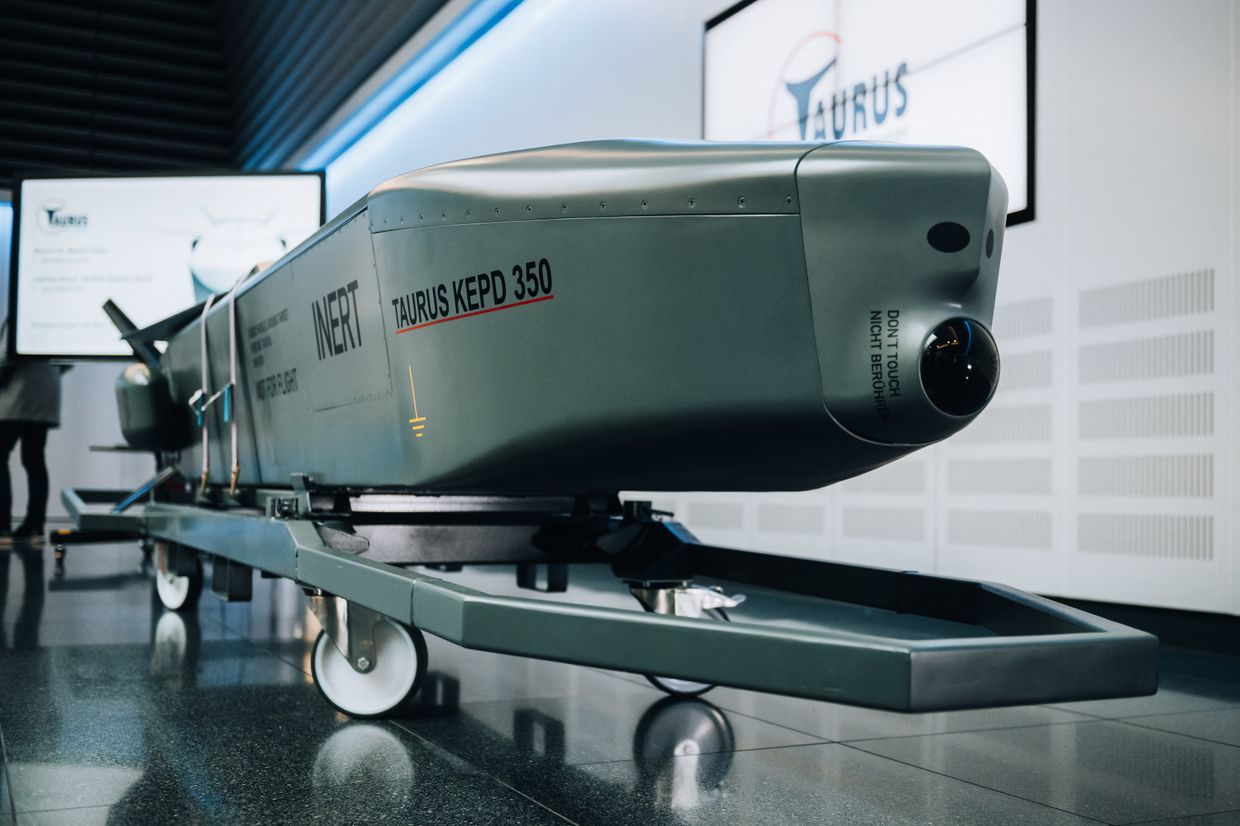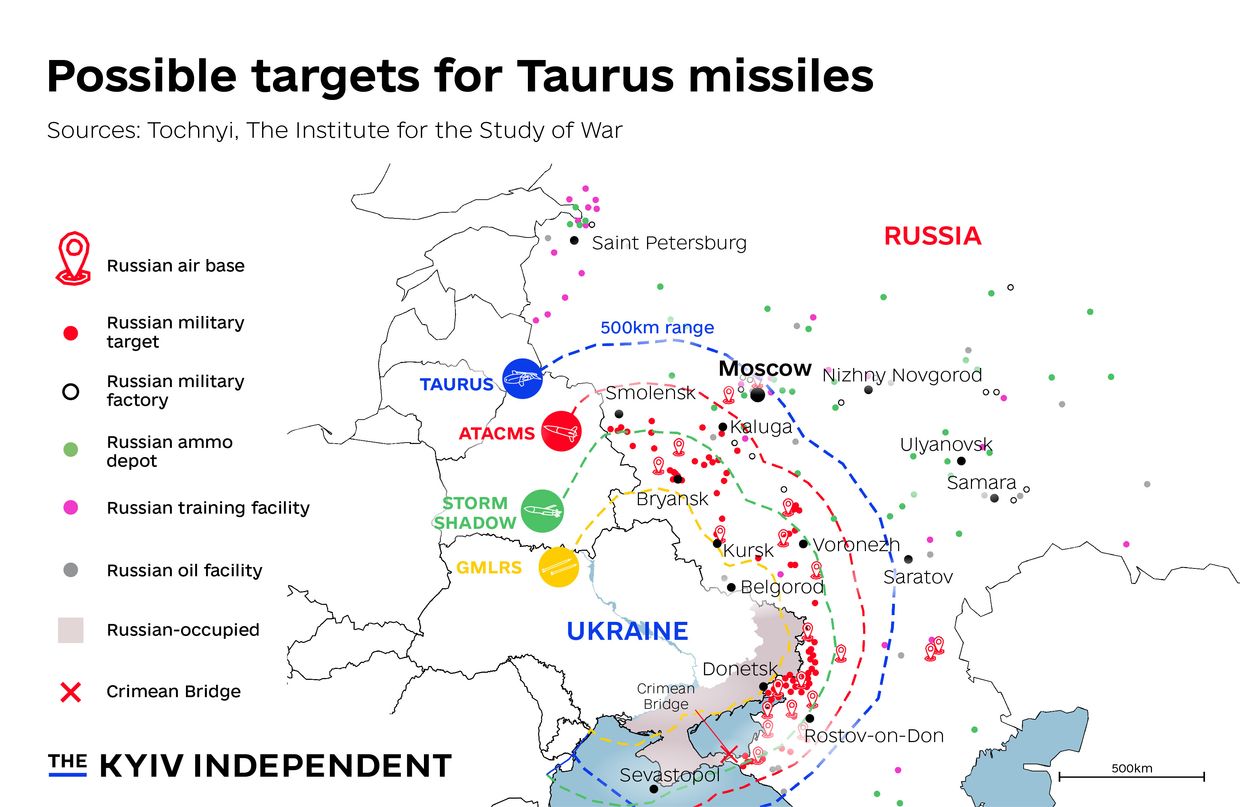
German Chancellor Friedrich Merz stated on July 1 that the choice to provide Taurus cruise missiles to Ukraine stays into consideration however pressured that Germany won’t grow to be a celebration to the struggle.
"It has all the time been clear that if we provide the Taurus, this weapon will probably be used not by German troopers, however by Ukrainians," Merz instructed Tagesschau. "By the best way, the identical applies to different cruise missiles equipped by the UK or France."
The Taurus is a strong cruise missile able to placing targets at a distance of 500 kilometers (300 miles) — a larger vary than the long-range weapons Ukraine has obtained from different companions.
Talking to the outlet, Merz highlighted the complexity of the Taurus system, noting that it requires intensive coaching earlier than Ukrainian forces can function it. When it comes to vary, pace, and payload, the Taurus missile is much like the Storm Shadow, which is produced by MBDA’s French division. The important thing distinction lies within the warhead design — Taurus will be programmed to detonate after penetrating fortified targets, corresponding to bunkers or bolstered services.

“The issue for us is that this technique is extraordinarily advanced, and coaching troopers on it takes at the least six months. Are they already being educated? We haven't agreed on that but,” he stated. “I mentioned this with President (Volodymyr) Zelensky, and I additionally raised it throughout the coalition. We haven’t began but. It’s and stays an choice.”
The chancellor additionally added that Germany would not publicly disclose particulars about its navy help to Ukraine with a purpose to forestall Moscow from assessing the total scope of Western help.
Since Russia launched its full-scale invasion of Ukraine in February 2022, Germany has supplied Kyiv with roughly 47.8 billion euros (about $51.8 billion) in complete bilateral help, making it Ukraine’s second-largest nation donor. This assist consists of navy gear, humanitarian help, help for refugees, infrastructure restore, and monetary assist for power and winter aid, with navy help alone totaling round 28 billion euros ($30 billion).
 The Kyiv IndependentAsami Terajima
The Kyiv IndependentAsami Terajima
